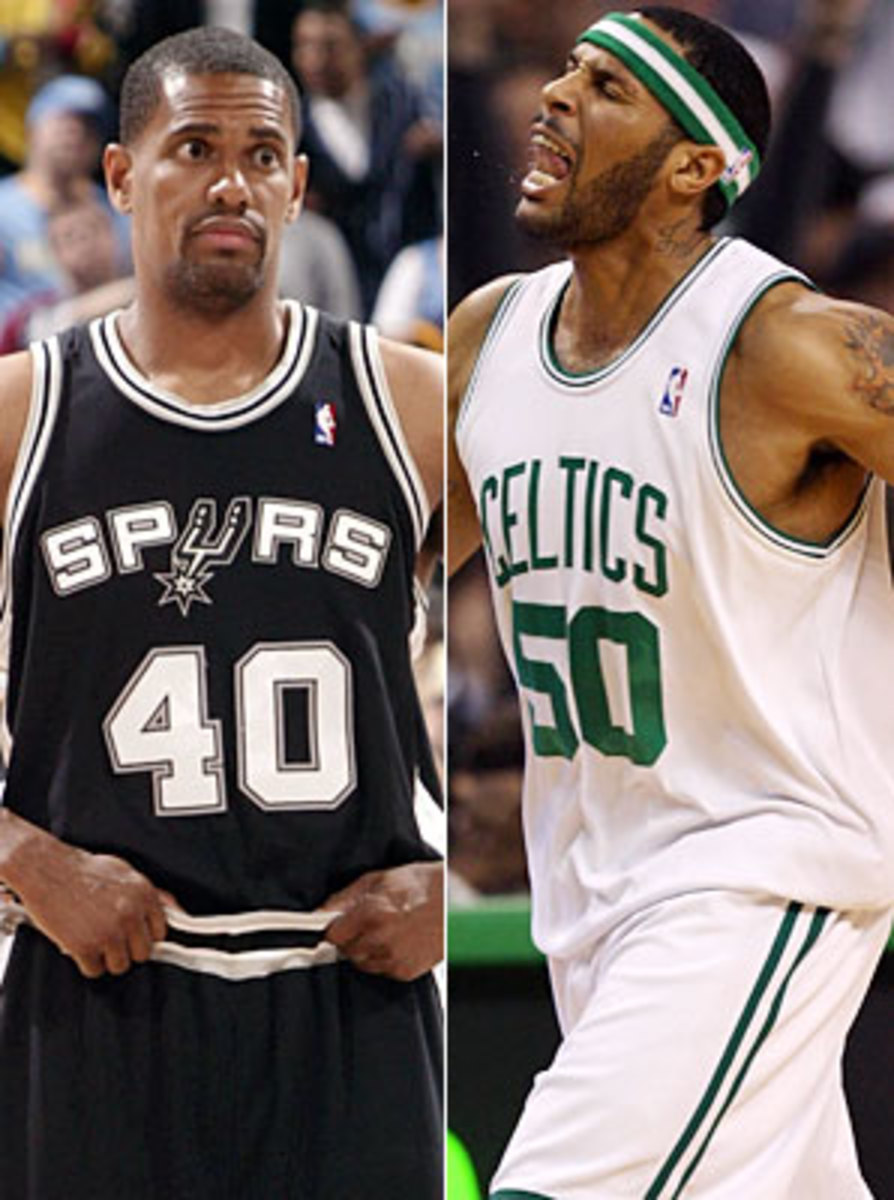Beyond the stars: Examples of role-playing at its best in the playoffs


In the NBA world of superstars, shot-makers and game-breakers, it is still often the less celebrated role players who provide that extra oomph for their teams. They do what they do so the stars can be the stars.
Every team in the final four has a group of role players who regularly contribute to its success, sometimes in big ways, like the Spurs' Fabricio Oberto, Robert Horry or Michael Finley; the Lakers' Sasha Vujacic, Luke Walton or Ronny Turiaf; the Celtics' James Posey, Kendrick Perkins or P.J. Brown; and the Pistons' Jason Maxiell or Rodney Stuckey, to name a few.
But we are here to talk about two others -- San Antonio's Kurt Thomas and Boston's Eddie House -- and how, in the seventh games of the series that got their teams this far, one sequence from each defined what a true role player does.
Thomas, a 13-year veteran whom the Spurs acquired in a midseason trade from the SuperSonics, had his moment late in the first quarter of Monday's game against the Hornets in New Orleans. The Spurs were leading 21-18 with 1:01 remaining when Thomas, on one trip down the floor, got an offensive rebound on a missed three-pointer by Bruce Bowen, got another on a missed three-pointer by Ime Udoka,got a third on a missed 10-footer by Tim Duncan and then finally scored himself, all in a 17-second span.
My first thought after watching Thomas' work was that there was no way the Spurs were going to lose this game now.
I had the same feeling about the Celtics seeing one play by House in Sunday's Boston-Cleveland Game 7.
House, a summer pickup playing for his eighth team in eight seasons, made a play midway through the second quarter that seemed to cry out that the Celtics wanted the game more than the Cavaliers did. First, Posey knocked the ball away from a driving Sasha Pavlovic. Cleveland's Wally Szczerbiak was six feet ahead of House as both took off after the loose ball as it rolled toward the Celtics' basket. Szczerbiak tried to shield House as the Celtics' guard made up the distance between them. But House drove under him, somehow gathered in the ball as he rolled along the floor and got it to Posey, who was then fouled by Szczerbiak on a layup attempt. Posey made both free throws for a 34-23 Boston lead.
Szczerbiak could have dived for the ball, but appeared to be more concerned about not skinning his knees. All of the Celtics saw the play and so did the Cavs.
Sure, neither Thomas' three consecutive offensive rebounds and subsequent basket nor House's hustle play decided the game, but you won't find better examples of what a true role player does: energize his team and demoralize the opposition in some way. The lesson here is that if Thomas and House didn't understand their roles, they never would have made those plays.
Many players pout or sulk when they don't get much playing time and aren't ready or willing to do whatever it takes to have an impact. Not so with Thomas and House. Those two plays showed their professionalism and, even when they weren't integral parts of their team's game plan, put their signatures on the biggest of games.
Both could figure prominently in their respective conference finals ... or not. But in a sport that thrives on the spectacular and is built around superstars who get the headlines, are featured in the promos and make the appearances in the interview room, don't be too surprised if it's a role player who makes the difference in both series. After all, there are a lot more of them than there are superstars.
